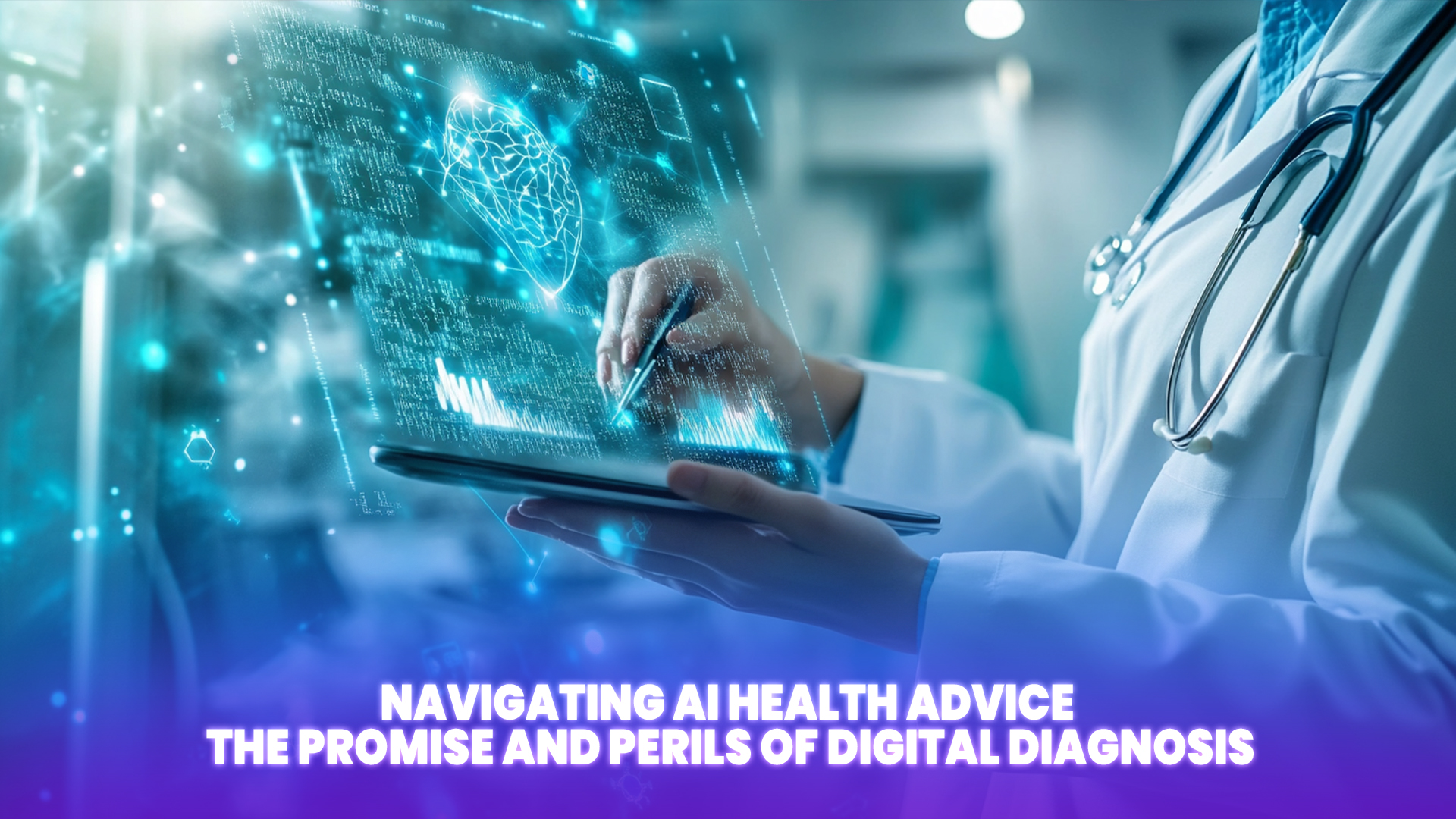



Navigating AI Health Advice: The Promise and Perils of Digital Diagnosis
With the rise of generative AI, more people are turning to artificial intelligence for health-related inquiries. From symptom checkers to wellness tips, AI has made healthcare information more accessible than ever. However, the growing reliance on AI for medical advice presents both opportunities and risks. Inaccurate or misleading AI-generated health information can have serious consequences, making it essential to balance innovation with responsibility.
The Double-Edged Sword of AI in Healthcare
Generative AI has the potential to revolutionize health guidance by offering quick, data-driven insights on various conditions. AI-powered chatbots and platforms can analyze vast amounts of medical literature, providing users with immediate answers to their health concerns. However, the accuracy of these responses depends on the quality of the training data and the contextual understanding of AI models.
Unlike trained medical professionals, AI lacks human intuition, experience, and ethical reasoning. Misinterpretation of symptoms, reliance on outdated data, or oversimplification of complex medical conditions can lead to incorrect diagnoses, unnecessary anxiety, or even dangerous health decisions.
The Role of Blockchain and CEEK in AI-Driven Health Solutions
Platforms like CEEK can help mitigate the risks of AI-driven health misinformation by integrating blockchain technology for verification and transparency. The CEEK Creator Hub offers a decentralized approach, where verified health professionals and AI developers can collaborate to create and share reliable, AI-generated health content.
Through CEEK Token, users can access and support trusted AI-powered healthcare tools while ensuring that content creators, including medical professionals, are fairly compensated. Blockchain-backed AI applications can also maintain a transparent record of updates and sources, reducing the risk of misinformation and enhancing credibility.
AI and the Future of Personalized Wellness
AI’s ability to analyze health patterns and lifestyle habits offers exciting possibilities for personalized wellness. By integrating AI with wearable technology and fitness applications, users can receive tailored health recommendations based on real-time data. The CEEK Metaverse could take this a step further by providing immersive wellness experiences—virtual consultations, guided meditation programs, or AI-driven fitness coaching.
However, AI-generated wellness advice should always complement, not replace, professional medical guidance. Platforms that combine AI insights with human expertise, like those envisioned in the CEEK ecosystem, can help bridge the gap between accessibility and accuracy.
The Need for Ethical AI in Healthcare
As AI continues to shape the future of health and wellness, ethical considerations must remain a priority. AI developers, healthcare professionals, and digital platforms must work together to ensure that AI-generated health advice is safe, up-to-date, and transparent.
By leveraging CEEK’s blockchain infrastructure, users can trust that the AI-generated health content they consume is validated and comes from reputable sources. Additionally, integrating AI with blockchain allows for decentralized community moderation, ensuring that misleading or harmful content is flagged and addressed.
Final Thoughts: AI as a Health Companion, Not a Doctor
Generative AI holds incredible promise for the future of health and wellness, but it is not a substitute for professional medical consultation. As more people seek AI-driven health advice, platforms like CEEK can play a vital role in ensuring accuracy, trust, and fair compensation for verified experts.
In this evolving landscape, AI should serve as a health companion—offering insights, improving accessibility, and enhancing wellness experiences—while always leaving the final word to human expertise. Through CEEK’s innovative ecosystem, we can navigate this digital transformation responsibly, ensuring that AI contributes positively to global health without compromising safety or credibility.


